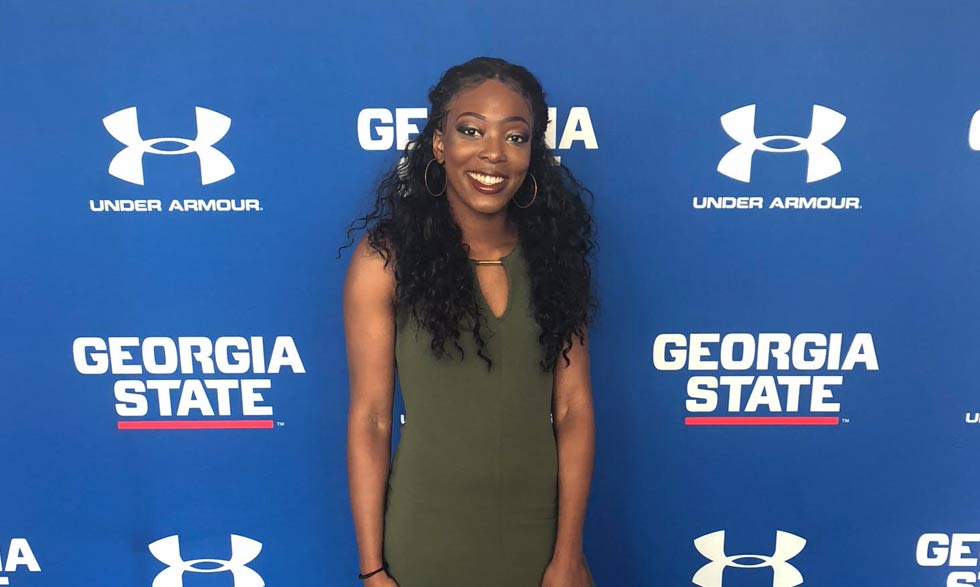
Brittney Hammond was 8 years old when her hair started falling out.
Her cousin was the first one to see the bald, coin-size patches when she was braiding Brittney’s hair.
A visit to the dermatologist with her mother gave them the answer. Brittney had alopecia areata, a skin disorder that causes hair to suddenly fall out in small patches.
Some people experience cycles of hair regrowth, followed by hair loss, for years. It’s not painful, but it can affect a person’s self-image.
For Brittney, now 20, bald spots weren’t such a big deal when she was in elementary school. But things changed in middle school.
"I was always worried about who would notice it, to the point where I would flat iron my hair every day," Brittney said.
By flat ironing her hair, Brittney could cover the bald patches on her neck and hide her condition.
High school demands
In high school, her cheerleading coach expected everyone on the team to wear their hair in a high ponytail.
Brittney was worried this would expose her bald patches, so she covered them with spray-on black hair dye. She also tried a weave, a hair extension sewn into her natural hair. But this caused more hair loss.
Brittney finally asked her coach if she could wear her hair differently to cover her bald patches.
When a teammate with short hair asked if she could do the same, the coach replied by sarcastically asking if she had alopecia, too.
"Things like that didn’t make the coping easier," Brittney said.
Brittney is now aat Georgia State University and a member of the cheerleading team.
She uses a special shampoo to keep her natural hair healthy. She also wears wigs and uses makeup to draw her eyebrows on.
"Wigs have become a big part of my life," Brittney explained. "And if you lose your eyebrows like I have, makeup is your best friend."
Family support
Brittney’s family has supported her through her alopecia experience.
"They were the only people who saw my hair in its natural state at its worst," she said.
Her father, who also has alopecia, has been especially supportive. Alopecia is a genetic disease, meaning people can inherit it from a relative, such as a parent.
Ups and downs
Despite a strong support system, Brittney still feels pressure.
"In the black community, our hair is important and we get judged on it," she said.
To help herself and others, Brittney started a YouTube channel where she talks about alopecia and how to cope.
Her main message is one of self-love and determination.
"It doesn’t define you," Brittney says. "This is a condition that tests you. You have to become strong and develop self-love and self-motivation to get through it."
Earlier this summer, for instance, all of her hair fell out in a few short weeks and she’s currently bald. But Brittney pushes on. She’s excitedly preparing for her final year of college and the future that lies beyond it.
“Though it is still an uphill battle, I have not lost faith. I still know that I am beautiful!” she says.“And as long as you are comfortable with yourself, that’s all that matters.”
This health news has been brought to you by the publishers of Health Reviews, Tips and News Website. Visit today for great health tips and reviews.



No comments
Post a Comment